Search Results
Showing results 1 to 18 of 18
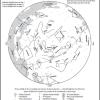
Where Are the Distant Worlds? Star Maps
Source Institutions
This fun hands-on astronomy activity lets learners use star maps (included) to find constellations and to identify stars with extrasolar planets (Northern Hemisphere only, naked eye).

Crash Landing!
Source Institutions
In this activity, groups cut out and sort cards showing items recovered from a crash landing on the Moon. The 12 items range from food and water to rope and matches to a self-inflating life raft.
Finding the Right Crater
Source Institutions
This quick demonstration (on page 11 of PDF) allows learners to understand why scientists think water ice could remain frozen in always-dark craters at the poles of the Moon.

Pocket Solar System: Make a Scale Model
Source Institutions
This fun and simple hands-on astronomy activity lets learners build a scale model of the universe with little more than adding machine tape.
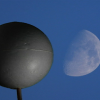
Why Does the Moon Have Phases?
Source Institutions
In this activity, learners use a simple 3D model to discover why the Moon has phases.

Standing in the Shadow of Earth
Source Institutions
This fun and simple hands-on astronomy activity demonstrates the shadow of the Earth as it rises as a dark blue shadow above the eastern horizon.
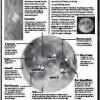
Observing the Moon
Source Institutions
Use this Moon Map Guide to help learners identify features on the Moon, while looking through a telescope.
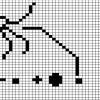
Translating an Alien Message
Source Institutions
In this activity, learners work together to interpret an "alien message." The group pretends that this is the only message from an imaginary civilization, so there is no "key" and thus no "correct" wa
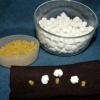
Nuclear Fusion
Source Institutions
This simple and engaging astronomy activity explains nuclear fusion and how radiation is generated by stars, using marshmallows as a model.
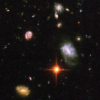
Telescopes as Time Machines
Source Institutions
This fun, nighttime hands-on astronomy activity lets learners explore how long it takes for light from different objects in the universe to reach Earth.
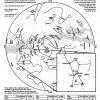
Supernova Star Maps
Source Institutions
This fun astronomy activity allows learners to experience finding stars in the night sky that will eventually go supernova. This activity is perfect for a star party outdoors.
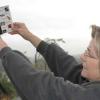
Ready to Observe: Enhance Your Telescope Experience
Source Institutions
This fun hands-on astronomy activity uses a variety of simple props to help learners understand why they see what they see in a telescope.
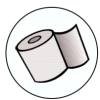
Toilet Paper Solar System
Source Institutions
In this activity, learners build a scale model of the solar system using a roll of toilet paper.
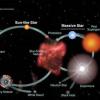
Supernovae in the Lives of Stars
Source Institutions
Many people think the different stages in the life of a star are actually different types of stars, rather than just stages in the life of a single star.
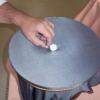
Gravity and Falling
Source Institutions
This fun and simple hands-on astronomy activity lets learners experiment with a bucket, stretchy fabric, marbles, and weights to discover some basics about gravity.
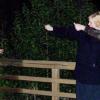
How Do We Find Planets Around Other Stars?
Source Institutions
This fun and simple hands-on astronomy activity describes techniques scientists use to find planets orbiting other stars.
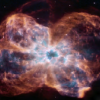
Telescope Treasure Hunt
Source Institutions
This hands-on astronomy activity lets learners hunt for different objects in the night sky that contribute to stellar and planetary formation, using a Treasure List.
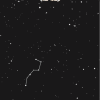
Constellation Detective
Source Institutions
In this quick activity, learners practice locating a constellation in a map of very dark skies.
